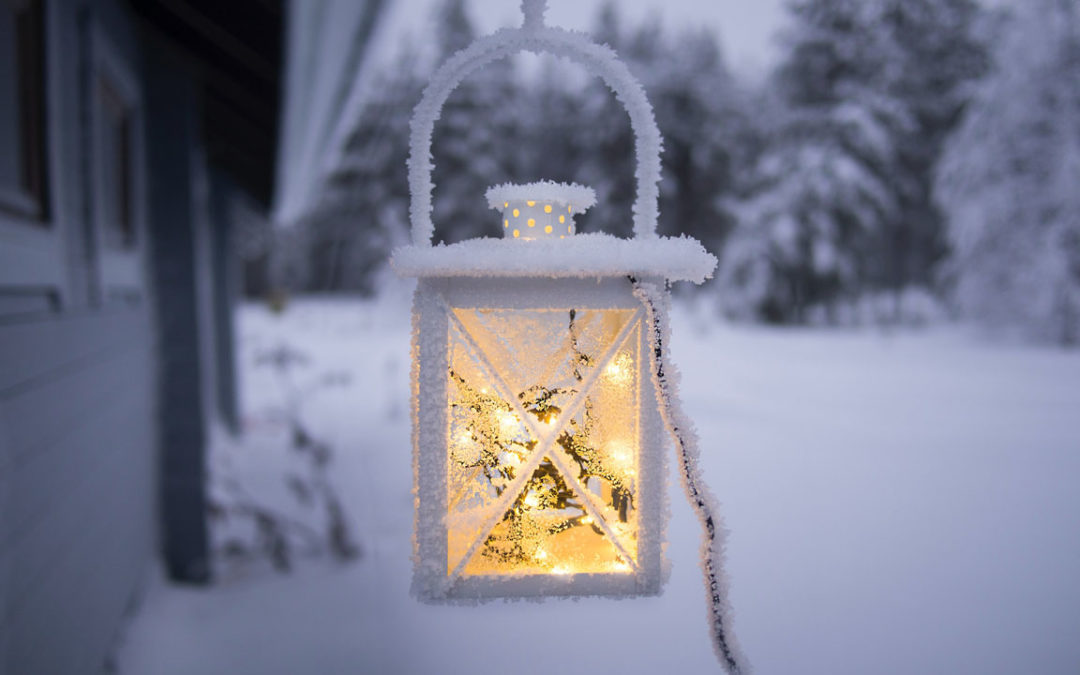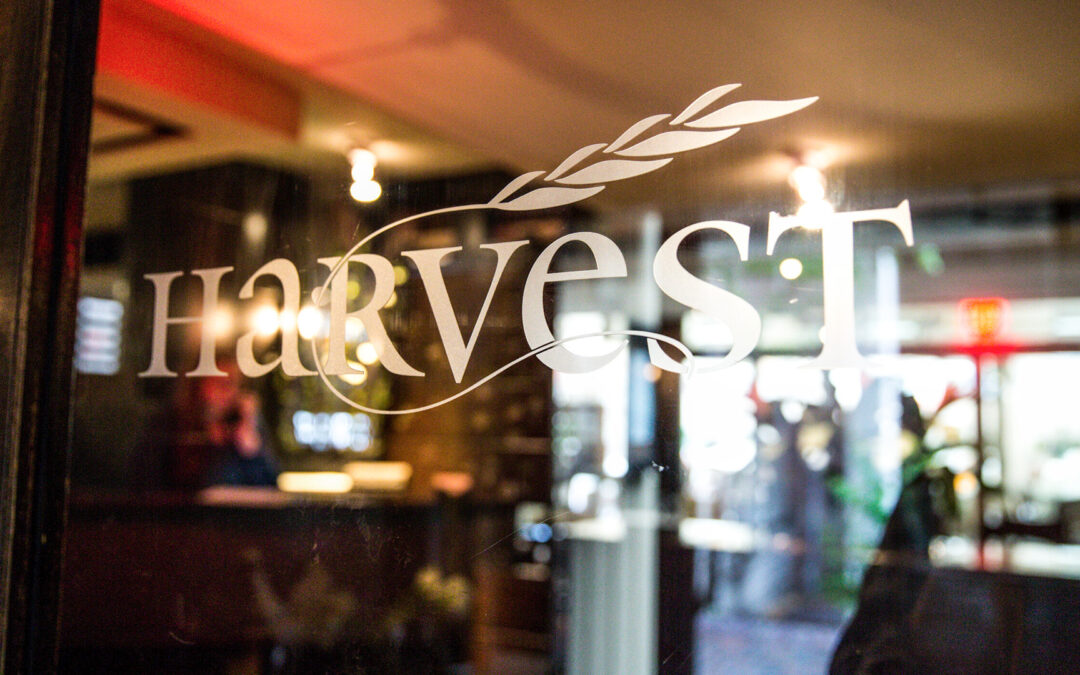
by Robert Bowie, Jr. | Jan 18, 2022 | Featured, Personal, Travel
As a young man my heroes proved their courage by welcoming and taking on great risk. I am amazed at how my heroes have changed over time.
In a few days, Susan and I will fly to the Osa Peninsula and the rainforest of southwestern Costa Rica. This will be the first trip there for Susan, but for me it will be a reunion with a place where I experienced real fear for the first time in my life.
In the late 1980s, I decided to go to Costa Rica to find the deepest rainforest I could find. I wanted an adventure and to be left alone.
I flew to San Jose, spent the night and got a little plane to fly me to a grass runway to be transported by a crazy American expat in his little boat to go down a muddy river to the Pacific and then south along the virgin jungle coastline to a remote lodge he had put together in the Corcovado rain forest.
The place was run by a small family for the expat. I knew I was in for a great adventure because the expat had a huge untrimmed beard and claimed he had a wife in Texas and a wife in Costa Rica and immediately told me, quite confidentiality, that he was an operative for the CIA. He had some issues. The place was empty except for me during the entire week I was there.
That is where I met Raphael, the teenage son of the farming family that managed the place when it was not the rainy season. He was assigned to take me fishing and scuba diving in a tiny Boston whaler.
Raphael had to pump the scuba tanks with a gas-powered compressor and catch our bait before we went out each morning to dive to find shark caves, fish offshore past Caño Island, or to go up the rivers to live within a world of howler monkeys that threw sticks at us from above and massive blue morpho butterflies and macaws that flew around us as we traveled into the rainforest.
Rafael did not like diving because he was afraid of sharks, which he claimed had killed a married couple the year before. I fashioned myself as a bit of a daredevil so I told him I was not afraid.
On my last day there, I told Raphael he could go wherever he wanted and I would go with him. Neither of us knew the other’s language but he told me he wanted to fish for giant pargo offshore out way past the island, where the drop off brought the big fish to feed in the current. All we had was light tackle. These fish can grow to as much as 40 pounds and tend to go deep and run. I’m pretty sure that Raphael did not share with his parents what we were going to do.
We packed extra water and cold beer and some sandwiches. He brought an extra tank of gas. We left in the late morning and easily caught several mackerel for bait. Rafael cut them in half and secured them on our hooks as we motored out into the Pacific. We went way out further than we had gone before. When I lost sight of land for the first time, I became a little afraid. After a while, Raphael switched the gas tanks.
I was at the bow of the boat and Raphael was back at the motor. We sat silently for several hours without a bite. As the sun started to go down, I wanted to go home. We had not seen land for a couple of hours by now. I became a little more afraid as we drifted with the current but I kept it to myself.
As the dark came, I waited and then looked back at him but his rod was bent over and when he looked back he grinned and said one word: “Grande!”
The fish was running deeper and deeper and heading further out into the Pacific. Now I was frightened, but told myself it could be I was just out of my element and I just should trust Raphael.
Raphael, on his unexpected day off, was too excited to give in to the fish. The stars started to come out and we kept being pulled out to sea. The night came, and Raphael kept reeling in the fish and then letting more line go out until there was no line left but his giant fish would not tire as it kept pulling us deeper and deeper into the dark.
The sea was calm and with the dark I had no sense of which direction the land was anymore. The moon rose in the night sky. There was a blanket of bright stars above us now and nothing but silence and the lapping of the gentle waves against the side of the boat until the line broke.
As we prepared to go, we threw the remaining mackerel overboard and the phosphorus all around lit up as our discarded bait was devoured by surface fish.
Raphael pulled the cord to start the boat but it wouldn’t start. He tried and tried again but the motor would not start. We had already used the extra tank of gas to get us out there. We were drifting in the dark with the stars above us as we were taken by the tide.
I said nothing. I was deeply afraid, but was I wrong to be? I didn’t think so.
Raphael tried and tried again until finally there was a sputtering and the engine died and then when Raphael tried again it started. He cautiously revved the engine several times and after examining the stars he then turned the boat and headed toward what I hoped was home.
Despite it all, it was stunningly beautiful. As we skimmed across the water for more than an hour, we lit up the phosphorus around us. Dolphins joined us on both sides of the boat with the glowing phosphorus trailing behind us as we careened over the water with the stars stretched over our heads.
Raphael kept checking the stars.
I was certain we were lost but Raphael refused to show fear. Was I overreacting? Finally, a dim light appeared in a shadow that must be the edge of the rain forest. The lights of the little lodge were all on and there were flashlights coming from the little dock.
As we got closer, I could see several people standing silently on the dock holding the flashlights and pointing them out at the sea. We had no running lights so it appeared they were guiding us into them. We slowed the boat and pulled up to the little ladder.
I felt foolish that I had been so afraid and accepted the hands offered to me as I climbed the ladder and stood on the dock.
Raphael tied up the boat and when he climbed the ladder his mother greeted him and slapped him harder than I’ve ever seen anybody hit before in my life. His family had been waiting ever since the sun went down. I was later told it had been hours of uncertainty.
When I visit Costa Rica this time I am sure that the virgin rainforest will have other lodges now but I have also changed. My heroes now are common people as they almost invisibly care for others.
I have come to understand better now the fear that boy’s mother felt as she waited on the dock in the night and shined her flashlight out at the sea.

by Robert Bowie, Jr. | Jan 11, 2022 | Featured, Personal
I believe in those little miracles that go unnoticed unless you choose to recognize them.
This is about one of those little miracles.
Like many people this year, our Christmas was canceled when my wife Susan and I realized we had COVID. Our children and grandchildren and friends could not be put at risk.
I was unspeakably sad as I sat in a silent house surrounded by wrapped Christmas gifts that would remain unopened and visible for the rest of the day.
We survived. We went out to the driveway masked to deliver Christmas gifts to Susan’s children and their girlfriends, who are thankfully local. After New Year’s when our quarantine was over, we were fortunate to have my son visit with his girlfriend, which was wonderful. We will be driving gifts up to Connecticut to my daughter and her husband and my granddaughter in about a week. We survived.
But then one of those little miracles happened.
January 6th is the 12th day of Christmas which traditionally marks the end of that holiday’s celebrations. This year, that day also marked the one-year anniversary of the assault on the Capitol.
But it is also the birthday of a lifelong friend I met in law school over 40 years ago. He is now seriously disabled and not easily able to leave his house. Because of COVID, he was also unable to invite his family and friends to his home to celebrate Christmas or his 70th birthday. But his children and their loved ones spontaneously organized a surprise Zoom call to wish him a happy birthday.
The gathering on Zoom included not only his law school friends but also friends of all ages, backgrounds, and political beliefs. It was huge.
It is hard to feel joy from a Zoom call, but in this case, it was palpable and undeniably warm and beautiful. At the center of it was a man who has transcended difficulties with tenacity and joy and has always lived a passionate life of kindness and commitment.
The next day, I called him so I could talk to him one-on-one. During that call, he told a story quite accidentally.
He owns a beautiful little house near Annapolis, which he can only stay in during the summer because it is too difficult for him to travel back and forth.
A week or so before his birthday, he had been asked by a teacher at a special school if he could perhaps open up his summer house to help a troubled middle school student regain her sense of security in a new environment after a difficult event in her life.
My friend didn’t think twice. He told the teacher to open the house and turn on the heat and use it for as long as it could be helpful.
As he told the story he offhandedly said, “That was the most beautiful present I got for Christmas or my birthday.”
For me, selfish and sad in a house empty during Christmas, this brought what Christmas is, in full force, back to me.
He had received nothing and given instantly from his heart.
After the call I hung up and was surprised to find myself crying.
On the last day of Christmas, my friend had reminded me what Christmas is supposed to be: a moment of reawakening and joy in a forever troubled world.
My friend had given me that gift.
It was one of those little miracles.

by Robert Bowie, Jr. | Dec 7, 2021 | Featured, Personal, Poetry
I am learning to trust and believe in random spontaneity!
Although I have been blessed with many friends, since I have committed to writing full time I have been painfully aware that I have few friends who are poets with whom I could converse.
The stars aligned perfectly last week when something wonderful happened. And then things just kept getting randomly better and better…
I had just gotten five copies of the final draft of my first book of poems, An Accidental Diary, from Kerry Sharda, my wonderful book designer. All of a sudden, the prospect of publishing became very real for me. So last weekend I took action.
I booked an impromptu trip to Boston to get advice on the book from a friend and two professors I adore about publishing this first book of poems. I then quite unexpectedly got to meet two poets I had previously never met but greatly admire.
I also had been waiting throughout the pandemic to congratulate Belinda Rathbone on her new book,
George Rickey: A Life in Balance, about the life and work of the famous kinetic sculptor.
I called Belinda hoping to meet her and get her advice but she told me that she was on her way to Scotland. After I told her about my mission, she told me that I should meet Lloyd Schwartz and Gail Mazur, both frequently published and very well respected poets, both of whom were her friends.
I jumped at this unexpected opportunity. How could this be getting better and better? I had their books and decided to bring along the most recent books of new and selected work, Who’s On First by Schwartz and Land’s End by Mazur, in the hope I could get them autographed.
We agreed to meet at Harvest, a restaurant in Harvard Square. I decided to be early but recognized Lloyd from his book cover photographs as he entered the restaurant and said, “I figured that must’ve been you because you were carrying all those books.”
Shortly after we were seated, Gail joined us and we talked for over two-and-a-half hours. We had an amazing link: We had all known the poet Elizabeth Bishop. I had only been her student once but they knew her well and Lloyd had written his PhD thesis on her and was a scholar of her works.
In addition, during our conversation I revealed that Robert Pinsky’s translation of Dante’s Inferno was a favorite of mine and Gail and Lloyd both told me they knew him and that Gail’s late husband had done the remarkable artwork for that book.
After the lunch crowd had emptied out and we finally left, Gail offered to walkover to The Charles Hotel to show me some of her husband’s works that were prominently on display as complete panels on the walls. They were as amazing as the illustrations for Pinsky‘s Inferno.
This was a remarkable weekend for me because though I love my friends I have painfully few friends who are poets.
To be surrounded by these wonderful creators as we freely talked about overlapping themes was overwhelming for me. The two were longtime friends and both agreed that creativity requires interchange and friendship to nurture artistic endeavor.
We agreed to meet again when I next came to Boston. I felt welcome and included and re-dedicated to this, my new and ever exciting profession.
It was all a spontaneous accident, which I come to believe more and more is what art and life is.
I have so much more to do.

by Robert Bowie, Jr. | Nov 23, 2021 | Featured, Personal
This is the time when we gather together and stop to appreciate each other, grateful for the friends we share and the bounty of the life we have. It is a shared life on this planet.
We are particularly thankful in beautiful Monkton, where we live, and very fortunate to occasionally have wild turkeys who gather to eat the spillover bounty from the bird feeders and to visit the gardens and fields of sunflowers to eat the seeds.
Especially for them, I guess, it’s a shared planet.
Happy Thanksgiving to everyone!

by Robert Bowie, Jr. | Nov 16, 2021 | Featured, Personal, Poetry
This is the story behind one of the sonnets in my upcoming book.
Sometimes you have to be far above a mistake before you acknowledge that you made it. In my case, it was flying from Belize and looking out the window more than 25 years ago.
The Blue Hole of Belize is a prehistoric giant crater which is over 400 feet deep and 43 miles out to sea from Belize City. From Ambergris Key, an offshore island east of Belize City, depending on weather conditions, it is about a 2 1/2 hour rough ride in a small Boston Whaler.
The Blue Hole was made famous by Jacques Cousteau in 1971 when he brought his ship The Calypso to the Blue Hole to chart its depth and explore its history.
Almost 30 years later, in the summer of 1997, an expedition of cave divers went in to document its underwater stalactite caves and search for its bottom depths.
Around this time, I went with several expert divers. We found it was pretty much empty of sea creatures and very cold as you descended ever deeper into it. We went down 150 feet to the nitrogen limits for 2 minutes. Our flashlights beams dimmed into the nothingness in that dark. If you looked up, far above us, the sky was like a distant open manhole cover and was our only meaningful light. After listening in the silence to our breathing for the two minutes, we ascended slowly with our bubbles to avoid nitrogen build up in our blood stream. It was very dark, cold, claustrophobic, and dangerous. Other divers had reported the same thing. After that dive I decided: “Well, been there, done that; never again.”
A few years later, when I was again in Belize to dive the outer islands, two Ambergris Key teenage brothers with a little Boston Whaler bet me a case of beer one night in a beachfront bar that if I went with them the following morning, it would be the most amazing dive I’d ever done. I refused and refused until I took the bet. This was a very stupid thing for me to have done.
In December 2018, 20 years later, two small submarines were sent to map the Blue Hole’s interior. At the bottom they discovered the bodies of two of the three divers who had gone missing while diving there over the years.
The Blue Hole in Belize
Was I the fool of this sinkhole of the sea
Or a pupil in this aqua ocean?
As I fly home it looks back at me
Without memory or emotion.
Three days ago, while taunting me, Miguel
Said: “You’ve dived it but not with me before.
I dive it deep. I dive it right to hell.”
He took my money but wouldn’t tell me more.
Off the boat, with Miguel still behind,
We checked our gear and descended into cold,
Deeper, darker, to fear of a different kind:
Sharks. Hundreds of them. Darting from the shadows.
At the boat Miguel offered a helping hand,
Laughing.” You understand? We chummed it man.”

by Robert Bowie, Jr. | Nov 9, 2021 | Featured, Politics
Can you hear? Paul Revere is calling!
I have always believed that the genius of America is derived from the ability of its people, from all walks of life and differing backgrounds, to talk together and educated each other.
I am not alone on this.
In the 1830s, almost 50 years after America was founded, Alex de Tocqueville, a visiting French diplomat wrote: “The greatness of America lies not in being more enlightened than any other nation, but rather in her ability to repair her faults.”
The way America has “repair[ed] her faults” and ensured its greatness has been “we the people” talking together and educating each other, and with the collective credibility of our conversation we voice our conclusions with our votes.
The founding fathers universally opposed political parties.
They feared that political parties could act as intermediaries for the voice of the electorate. I would argue that the political parties have now evolved to protect only themselves.
Our elected representatives are heavily funded by the political parties and rewarded with better health and retirement benefits than those whom they represent. They vote in lockstep with the party interests.
Recently the political parties have divided us through gerrymandering, voter suppression, and by defining the issues of our conversation, and we are polarized.
The parties relentlessly continue to further increase their power and our polarization at our expense. Most recently, in 19 states they have limited our collective voice, which is the vote. The parties now just fight each other for dominance rather than represent their constituents.
The polarization of America threatens not only our greatness but now even our democracy.
We no longer talk to each other to repair America’s faults.
We the people are not the enemy. The Political parties are.
So what do we the people do?
First, we pass the deadlocked voting rights legislation presently pending in Congress, which would curtail gerrymandering and preserve every American’s right to vote.
Second, we must regain our obligation to share our collective conversation and educate each other from our differing experiences.
Sixty years ago, John F. Kennedy spoke to the nation and said “Ask not what your country can do for you. Ask what you can do for your country.”
What is asked of us now, other than to pay taxes, which we avoid as much as possible? That’s about it. With little or no responsibility to our county, we have become entitled, lazy, and self-centered.
The Second World War brought us together as we marshaled our resources to protect democracy and the free world against the fascist states of Germany, Italy, and Japan. These countries lost their freedom from the inside when they let totalitarianism take over. In contrast, the American people worked together side-by-side, talked together, and came out of that war as the most prosperous nation in the world up until now.
What if we each agreed to a universal commitment to serve the country for just one year to work together side by side, talking together and in so doing eradicate the political parties’ polarization which now separates us?
The 2022 election, one year away, will set in stone for ten years the gerrymandering and voter suppression which has been imposed on us. We the people must take our government back now or perhaps lose it forever to the power brokers that were once middleman and now are our kings. We are not their servants.
But that’s not all we have to do. We have to individually accept the responsibility to talk to those who are our perceived enemy and not lecture each other but listen and learn and become great again.
I have been blessed with critics of my points of view on this blog and on more than one occasion I have asked to meet them and buy them a beer. In each case, I have made a friend with a different political perspective, and an American friend at that.
We are not the enemy! We hold the genius of America in our hands if we will only embrace our responsibility and get rid of those who would make us slaves to their superiority and greed.
It is time to raise up before it is too late. It’s up to us to protect our democracy and our country.
Wake up! Paul Revere is calling.






